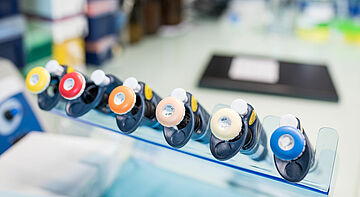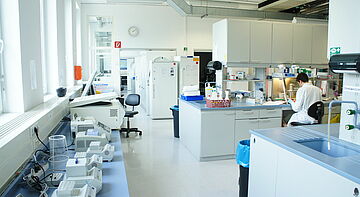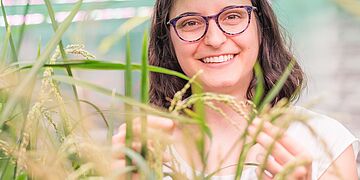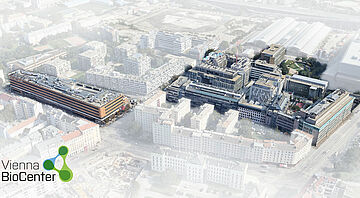Sustainability
Biological and biomedical research institutes require a large amount of energy, produce tons of plastic waste, and lead to substantial CO2 emissions through international air travel. The Vienna BioCenter community feels the obligation to adapt and to make research more sustainable. Several initiatives on campus want to show that change is possible. We currently focus on acquiring data about the impact of research, sensitising employees, and implementing solutions to reduce our CO2 footprint as much as possible.
The Climate@MaxPerutzLabs and the Environmental Protection Committee at the IMP, IMBA, GMI, and VBCF are committed to help tackle the climate crisis by reducing the environmental footprint of the Vienna BioCenter research institutes. By informing employees and students, and by testing sustainable research solutions, they aim to make research as climate friendly as possible and to motivate all employees to become more energy efficient, reduce waste, and cut emissions associated with transport.
Vienna BioCenter Climate Lecture Series
In this lecture series, international speakers from universities, research institutes, and companies share their knowledge on best practices to save energy, reduce waste, and other aspects of sustainability in the lab. The lectures cover diverse aspects of climate change and can benefit any research institution.
The lectures are announced via the VBC calendar and past lectures are freely available on YouTube.
Using green energy
In 2020, several institutes have opted for energy providers that source their energy from renewables only. With their efforts, the IMP, IMBA, GMI and VBCF have decreased their CO2 emissions significantly, even after accounting for the reduction in air travel resulting from the COVID-19 pandemic. The Max Perutz Labs will switch to electricity from renewable sources (UZ-46 certified) in 2025.
Freezer management
Ultra low temperature freezers consume large amounts of electricity. Many labs in the research institutes on campus have increased the temperature of their freezers from -80 degrees to -70 degrees, and now purchase ultra energy-efficient freezers only.
Plastic recycling
Research labs produce 2% of single-use plastic waste worldwide (Urbina, Nature 2015), corresponding to about 1% of the global annual production of plastic. Several labs at Max Perutz Labs have analyzed their plastic use and have determined that more than 50% could be recycled after use. Together with Green Labs Austria, now based at the University of Vienna Biology Building on campus, and other partners, these labs are looking to recycle polypropylene, high-density polyethylene and polystyrene.
Travel reduction and sustainable conferencing
Scientists regularly attend international conferences and meetings, and can now do so comfortable from their own office. Research institutes at the Vienna BioCenter are committed to reduce airtravel. For instance, the IMP has decided to reduce air travel by 40% in 2022, compared to pre-pandemic levels.
Conference organizers on campus are also encouraged to limit the environmental impact of their events, and to receive a certificate from the Austrian Ecolabel for Green Meetings and Green Events.

Bicycle initiative
Vienna offers a dense network of bicycle lanes in constant growth. The bicycle initiative, headed by the IMP and Max Perutz Labs, encourages the staff at the Vienna BioCenter to cycle to work and leave their cars at home. The initiative organises sponsored bicycle check-ups to keep cyclists safe and their rides healthy.



